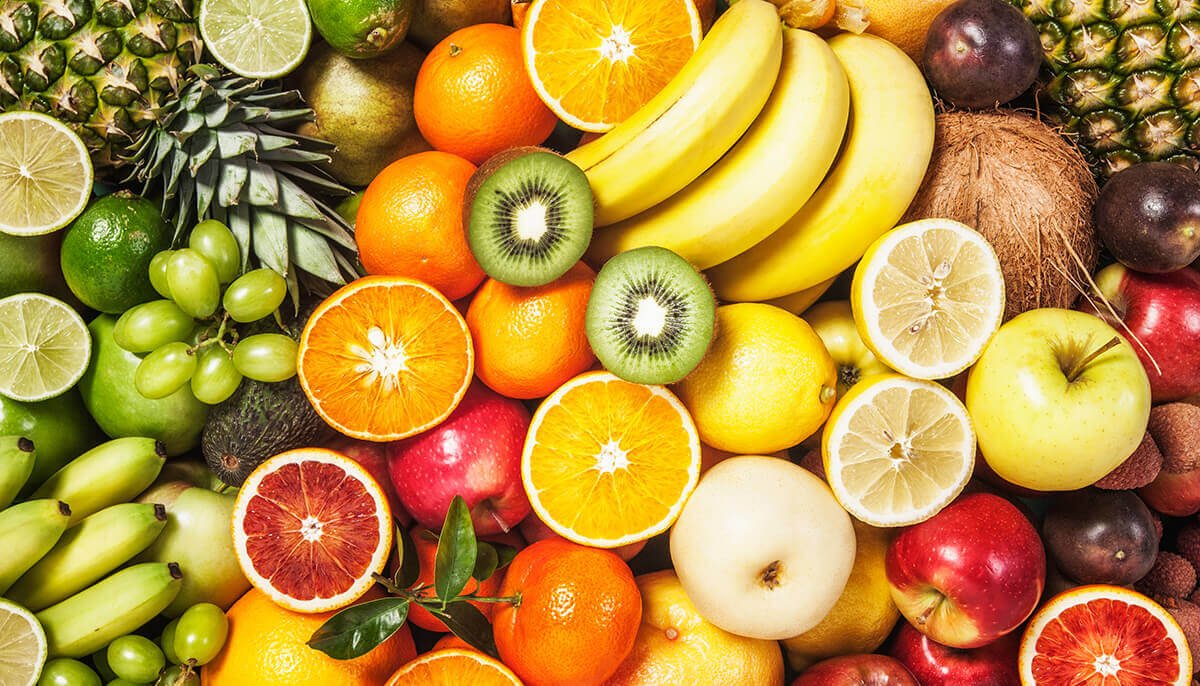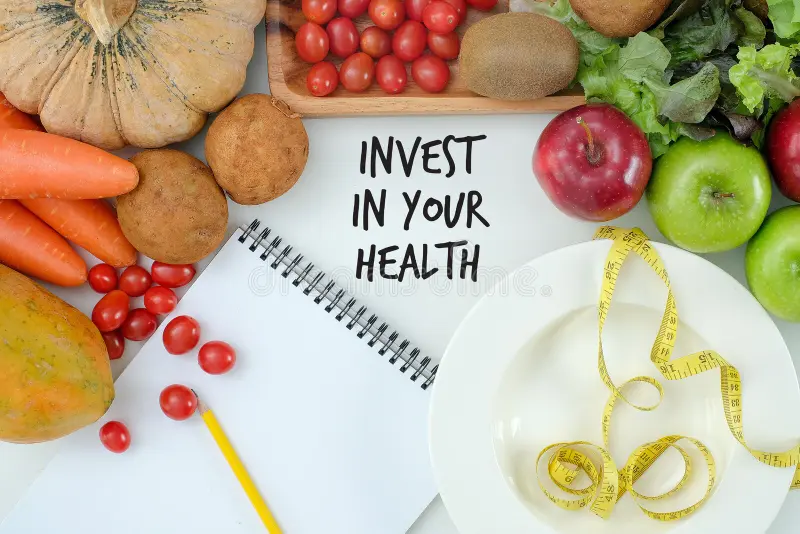Did you know nearly 70% of American adults are overweight or obese? This shows how vital effective weight loss strategies are today. If you want to lose weight, knowing about different diets is a good start. It’s important to pick the best diet for you, based on what works best for your body.
We’ll look at several effective weight loss plans. These plans promise quick results and focus on lasting changes. By finding a diet that fits your health needs and lifestyle, you can reach your weight loss goals. Get ready to find the best way to lose weight fast and keep it off.
Key Takeaways
- Understanding the significance of choosing the right weight loss diet.
- Importance of aligning dietary choices with personal health goals.
- Quick strategies for effective weight loss.
- The role of popular diets and their sustainability.
- Insight into the varying approaches to dieting.
Understanding Weight Loss Diets
Weight loss diets are eating plans that help you lose weight while keeping your diet balanced. They focus on whole foods and cutting calories. By trying out different diets, you can find one that fits your life and tastes.
What Are Weight Loss Diets?
Weight loss diets are eating plans that help you lose weight. They include low-carb, ketogenic, and Mediterranean diets, each with its own rules. The main goal is to eat fewer calories but get all the nutrients your body needs.
This means choosing foods rich in fiber, lean proteins, and healthy fats. It also means cutting down on processed foods and sugars.
The Science Behind Weight Loss
To understand weight loss, you need to know the science behind it. Weight loss happens when you eat fewer calories than your body burns. This makes your body use stored fat for energy.
Metabolism is key in this process. It’s how your body turns food into energy. Things like age, muscle, and how active you are affect your metabolism.
Studies show that macronutrients and micronutrients are important for weight management. Macronutrients are carbs, proteins, and fats, each with their own role. Micronutrients, like vitamins and minerals, help with metabolism.
Eating healthy is important for losing weight. It makes sure your body gets what it needs and helps you manage your weight better.
Best Diets for Fast Weight Loss
Exploring different diets can help you pick the best one for quick weight loss. There are many diets designed for fast weight loss, each with its own approach and results. This section looks at some popular diets and their long-term effects.
Overview of Popular Rapid Weight Loss Diets
Many people choose rapid weight loss diets for quick changes. Here are three well-known diets:
- Keto Diet: This diet is low in carbs and high in fat. It puts your body into ketosis, burning fat instead of carbs. Many see fast weight loss at first.
- Intermittent Fasting: This diet alternates between eating and fasting. It can lead to weight loss by cutting down on calories.
- Paleo Diet: This diet focuses on whole foods from the Paleolithic era. It excludes processed foods and sugars, leading to quick weight loss for many.
Are They Sustainable Long-Term?
Rapid weight loss diets can show quick results, but their long-term use is a concern. Experts say extreme diets can lead to weight gain later. It’s hard to keep up with these diets long-term.
Health groups stress the need for balance and moderation for lasting weight loss. They say it’s better to aim for a sustainable lifestyle than quick fixes.
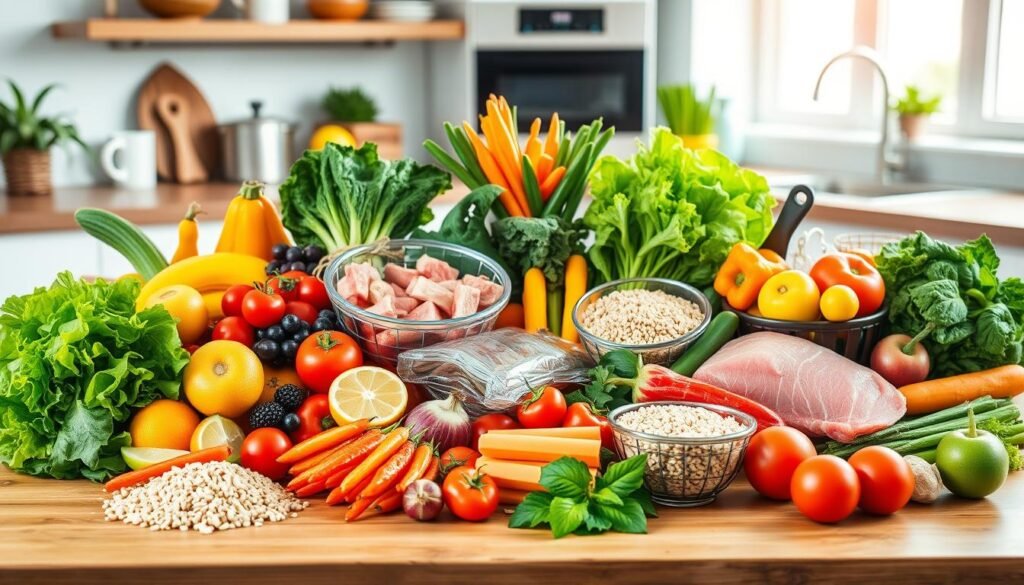
| Diet | Initial Weight Loss | Sustainability | Potential Risks |
|---|---|---|---|
| Keto Diet | High | Low | Nutrient deficiencies, keto flu |
| Intermittent Fasting | Moderate | Medium | Overeating, nutrient loss |
| Paleo Diet | Moderate to High | Medium | Restrictive nature, nutrient imbalances |
Healthy Eating for Weight Loss
Starting your weight loss journey with healthy eating is all about making smart food choices. Whole foods are essential. They help you make meals that are both tasty and good for you.
Incorporating Whole Foods into Your Diet
Whole foods include fruits, veggies, whole grains, lean proteins, and healthy fats. They are packed with nutrients that boost your health. Unlike processed foods, they don’t have added sugars or unhealthy fats. Here’s what to focus on:
- Fresh fruits and vegetables: Aim for a rainbow of colors to maximize nutrient intake.
- Whole grains: Choose options like brown rice, quinoa, and oats for their fiber content.
- Lean proteins: Incorporate chicken, turkey, fish, beans, and legumes to help with satiety.
- Healthy fats: Use sources like avocados, nuts, and olive oil to enhance flavor and nutrition.
Importance of Nutrient Density
Nutrient density is about getting lots of essential nutrients from each calorie. Foods high in nutrient density are key for weight loss. They help you feel full without eating too many calories. The World Health Organization says it’s important to eat foods that keep you full and give you energy.
To improve your meal planning:
- Make a list of preferred whole foods and create balanced meals around them.
- Experiment with new recipes to keep your meals exciting and enjoyable.
- Stay mindful of portion sizes to maintain a healthy calorie balance.
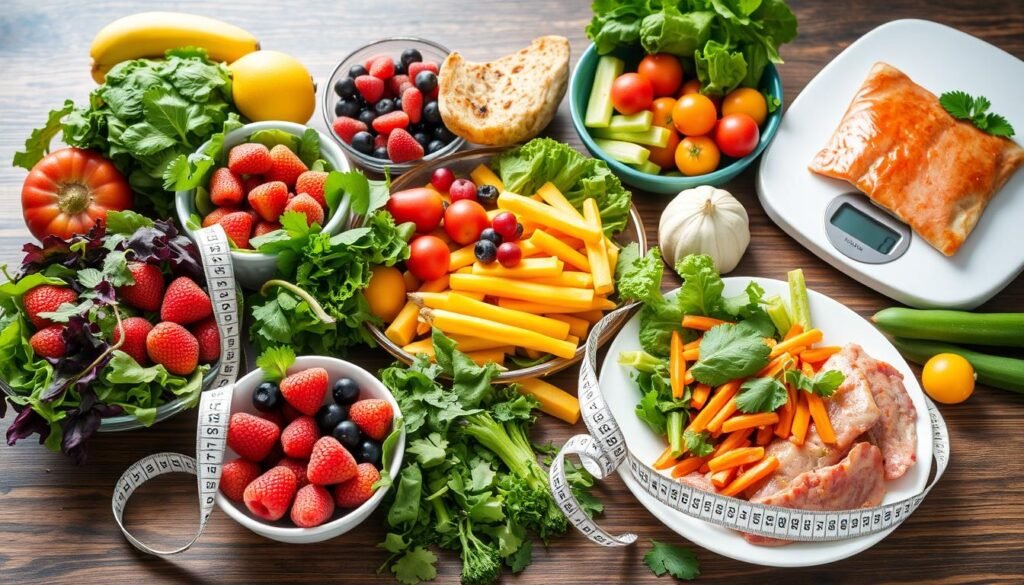
Effective Weight Loss Plans that Work
Choosing the right weight loss program is key to a healthier life. Many plans offer different ways to manage weight. Knowing these methods helps you pick one that fits your lifestyle and preferences.
Comparison of Different Weight Loss Programs
There are many successful weight loss programs out there. Each one meets different needs with its own features. Here’s a table comparing some popular ones:
| Program | Approach | Cost | Key Benefits | Consumer Ratings |
|---|---|---|---|---|
| Weight Watchers | Point-based system | Monthly subscription | Flexible eating, Community support | 4.5/5 |
| Jenny Craig | Pre-packaged meals | Weekly fee | Personal Coaching, Structured meals | 4.2/5 |
| Mediterranean Diet | Whole foods focus | Variable (self-prepared) | Sustainable, Health benefits beyond weight loss | 4.8/5 |
How to Choose the Right Plan for You
Choosing the right program is all about knowing what you need. Here are some tips to help you decide:
- Assess your goals: Know what you want to achieve.
- Evaluate program features: See which ones you like.
- Consider your budget: Look at the costs of each program.
- Look for testimonials: Read what others say to see if it works.

Weight Loss Meal Plans to Consider
Creating a structured meal plan is key to reaching your weight loss goals. There are many weight loss meal plans out there. They cater to different tastes, like vegetarian, vegan, and low-carb. Choosing meals that fit your calorie needs is important for success.
Sample Meal Plans for Various Diet Types
Here are some sample meal plans for different diets:
| Diet Type | Breakfast | Lunch | Dinner | Snacks |
|---|---|---|---|---|
| Vegetarian | Oatmeal with fruits | Quinoa salad with vegetables | Stir-fried tofu with broccoli | Hummus with carrots |
| Vegan | Smoothie with spinach and banana | Lentil soup with whole-grain bread | Chickpea curry with brown rice | Fruit salad |
| Low-Carb | Scrambled eggs with spinach | Grilled chicken salad | Salmon with asparagus | Almonds |
Tips for Meal Prepping
Meal prepping makes your weight loss journey easier. Here are some tips:
- Batch cook: Cook big batches of meals and save them for the week.
- Use versatile ingredients: Choose foods like brown rice or quinoa that work in many dishes.
- Plan snacks: Have healthy snacks ready to avoid cravings and stay on track.
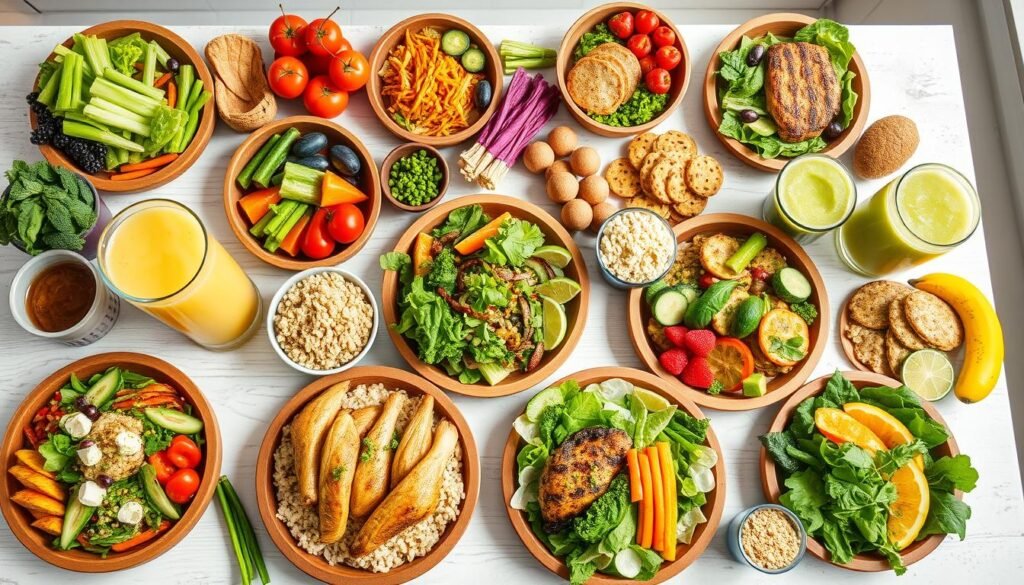
Proven Weight Loss Strategies
Starting a weight loss journey takes commitment and the right approach. Using proven strategies can greatly improve your success chances. It’s important to set realistic goals and track your progress. These steps motivate you and give you clear goals to reach.
Setting Realistic Goals
Setting goals that are within reach is key. Trying to lose too much weight too fast can be discouraging. Aim for losing one to two pounds a week. This pace is more likely to lead to lasting success.
Tracking Your Progress
Keeping track of your journey is very helpful. Many people use diaries or apps to log their food and exercise. This helps spot patterns and keeps you on track. Research shows that tracking progress boosts your chances of reaching your goals.

| Goal Setting Strategies | Progress Tracking Methods | Benefits |
|---|---|---|
| SMART Goals (Specific, Measurable, Achievable, Relevant, Time-bound) | Food diaries | Increased motivation |
| Weekly check-ins | Mobile tracking apps | Better accountability |
| Short-term milestones | Progress photos | Visual representation of success |
Natural Weight Loss Solutions
Looking into natural ways to lose weight can really help. Herbal and nutritional supplements are key in this journey. They offer support and help with losing weight in a natural way.
Herbal and Nutritional Supplements
Supplements like Garcinia Cambogia and Green Tea Extract are getting a lot of attention. They might help with losing fat and boosting metabolism. For example, Garcinia Cambogia has hydroxycitric acid, which could help control hunger and fat storage.
Green Tea Extract, on the other hand, is full of antioxidants called catechins. These can help burn fat when you exercise.
Behavioral Changes for Lasting Results
Making changes in how you behave can also help a lot with weight loss. Mindful eating helps you pay attention to your meals. This way, you can tell when you’re really hungry and stop eating when you’re full.
Stress management, like meditation and yoga, can also help. It can reduce the urge to eat when you’re stressed. These habits work well with natural supplements and help you stick to your weight loss plan for the long term.
Weight Loss Diets: Pros and Cons
Looking into weight loss diets shows many ways to lose weight. Each method has its good points and downsides. Knowing these can help you pick the right diet for you.
Benefits of Different Diet Approaches
There are many diets for losing weight, each with its own benefits. They appeal to different lifestyles and food likes. Some key advantages include:
- Effectiveness: Diets like the ketogenic or Mediterranean diet can lead to quick weight loss.
- Flexibility: Plans like flexible dieting or intermittent fasting let you eat a wide variety of foods. This makes sticking to the diet easier.
- Nutritional Awareness: Diets that focus on whole foods help you eat healthier. They often lead to lasting changes in how you eat.
Potential Risks to Consider
When looking for the best diet for weight loss, it’s important to think about the risks. These can include:
- Nutritional Deficiencies: Diets that are very restrictive might not give you all the nutrients you need. This could be bad for your health.
- Metabolic Slowdown: Eating too few calories can slow down your metabolism. This can make it harder to lose weight over time.
- Psychological Effects: Some diets can make you feel bad about food. This can lead to feelings of guilt or anxiety when you eat.
Staying Motivated on Your Weight Loss Journey
Keeping motivated on your weight loss path can be tough. Getting support from friends, family, or online groups helps a lot. These groups offer encouragement and keep you on track.
Finding Support and Community
Being part of a weight loss group makes you feel connected. You can share your journey with people who get it. Look for groups online or in your area. They can boost your mood and keep you going.
Celebrating Your Milestones
It’s important to celebrate your achievements. Losing weight or sticking to your diet is something to be proud of. Reward yourself with things like a spa day or new workout clothes.
Conclusion
Starting a weight loss journey is both rewarding and challenging. We looked at different diets and plans to help you lose weight quickly. The key is to find a diet that fits your taste and lifestyle for lasting success.
Remember, sticking with it is essential. Making lasting changes is better than quick fixes. Stay patient and committed, knowing every small step counts. A holistic approach will help you build a healthier body and mind.
Your weight loss journey is just starting. You now have the knowledge and a plan that suits you. Stay focused on your goals and be open to changes. Here’s to your success in finding the right weight loss strategy!

